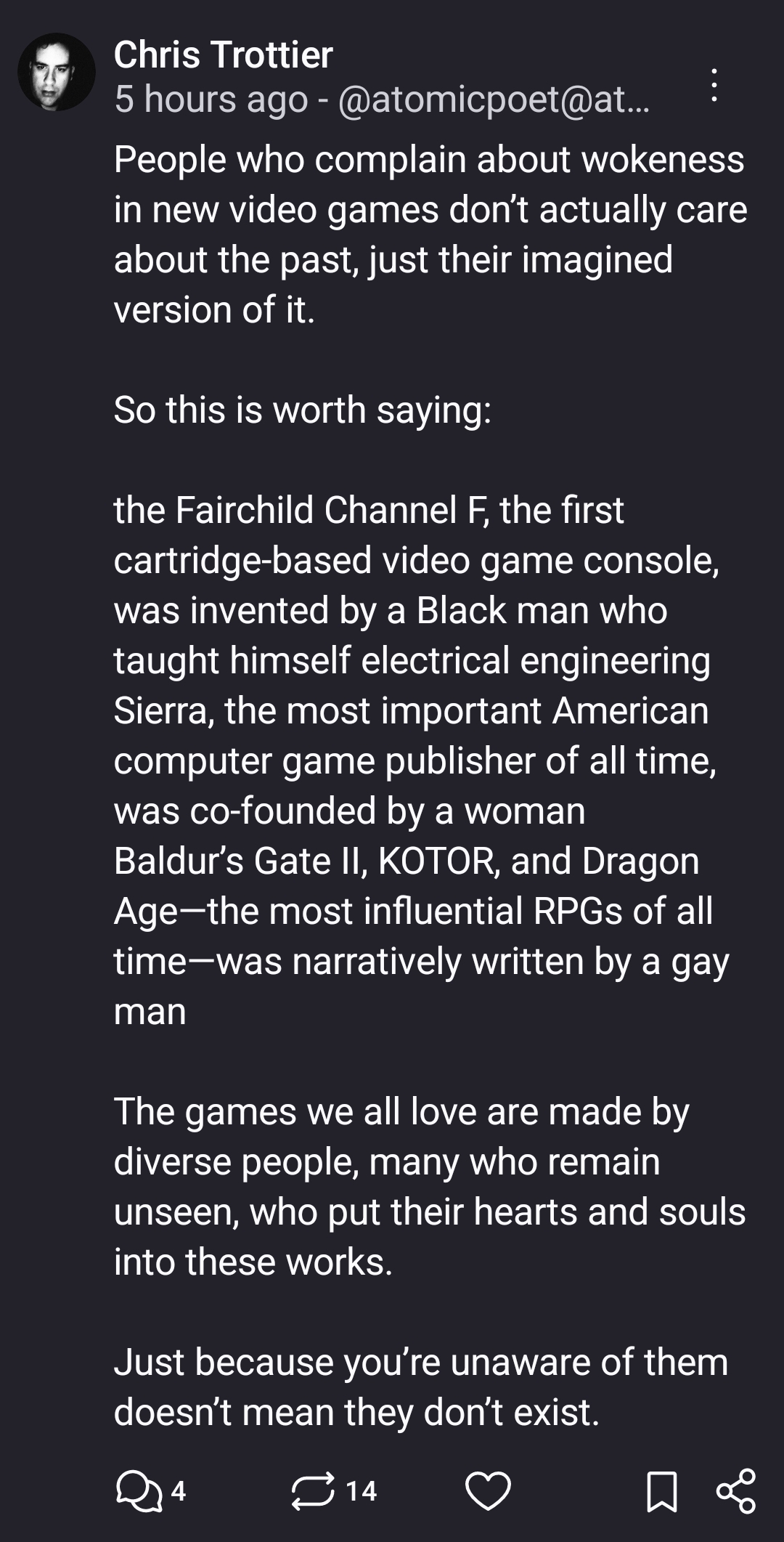this post was submitted on 28 Nov 2024
1149 points (94.4% liked)
Microblog Memes
5903 readers
3468 users here now
A place to share screenshots of Microblog posts, whether from Mastodon, tumblr, ~~Twitter~~ X, KBin, Threads or elsewhere.
Created as an evolution of White People Twitter and other tweet-capture subreddits.
Rules:
- Please put at least one word relevant to the post in the post title.
- Be nice.
- No advertising, brand promotion or guerilla marketing.
- Posters are encouraged to link to the toot or tweet etc in the description of posts.
Related communities:
founded 1 year ago
MODERATORS
you are viewing a single comment's thread
view the rest of the comments
view the rest of the comments

I believe you’ve misunderstood my point. I wasn’t discussing ‘Cultural Marxism’ as a conspiracy theory, nor was I making any claims tied to anti-Semitism. What I was explaining is the historical and intellectual roots of certain frameworks, like the oppressor-oppressed dynamic, which can be traced to Marxian economics, Critical Theory, and intersectionality. These are well-documented academic concepts, not fringe ideas.
As for Jordan Peterson, I didn’t reference him or his views, but even if I had, dismissing someone’s argument based solely on perceived influences doesn’t address the substance of what they’ve said. If you disagree, I’d be happy to discuss the specifics of where you think my understanding of these concepts is incorrect.
Provide the documentation. What does intersectionality have to do with Marxian economics? What authors have you read who discuss both?
Andros, I’d be happy to clarify the connection, but first, I want to point out that the request ‘documentation’ assumes a level of gatekeeping that isn’t conducive to a casual discussion like this. The good news is that the information I’m drawing from is widely available and well-documented in academic literature. Read my response to the 3rd quote.
While Marxian economics focuses on class, Critical Theory and Intersectionality adopt its foundational idea of systemic oppression and expand it to include social identities and cultural systems of power. I did mention this in my definition of 'woke', in a previous reply.
Angela Davis combines feminist and Marxist thought. Academic texts I can refer you to:
Nancy Davis blends Critical Theory with Intersectionality. Another pair of examples that prove my point:
I'm sure you'll find many connections there.
Now, Is there something specific you’d like more detail on? I’d be happy to point you toward some sources. Good day.
Have you read Women, Race and Class?
I'm glad you asked. Yes I have, more than once. But, you know what? some chapters of the book are available at marxists.org. You can check there, if you like. Now, let me ask you this: Do you have an actual point to make , or is your goal simply to discredit me personally?
Where are you finding chapters of Davis’s work on marxists.org? I found an article discussing her work on there, but I believe most of her work is still under copyright. I have a hard copy of Women, Race and Class myself.
What would you argue Davis’s main point in that book is?
If you do own a copy, Andros, you know it covers a such a broad range of topics that it's hard to distill into a single takeaway. But if I had to sum it up, I'd say that, to truly understand the struggles of marginalized groups, particularly Black women, we need to recognize how factors like gender oppression, race and class influence each other.
I'm sure we're way off-topic now, but do you agree/disagree?